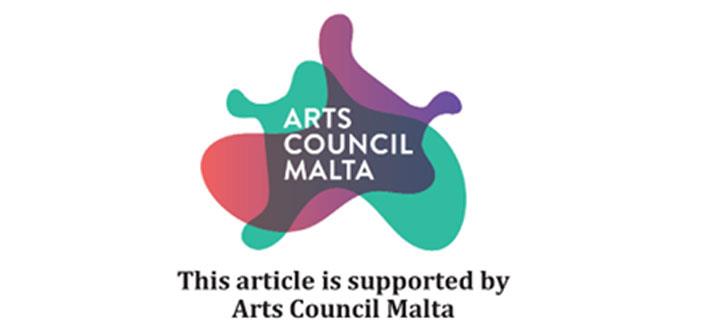Of destructive behaviours and vicious cycles; an unnerving pitfall in our lives serving as a fatal crutch to our persona and health, the allure of alcohol forms a relentless backdrop to Blackout Songs by Joe White, which made its Maltese debut as Għanjiet il-Baħħ. Translated by Mark Vella and directed by Toni Attard, the play stars Jacob Piccinino and Simone Spiteri as ill-fated characters drawn together by chance at an AA meeting. What begins as a passionate, whirlwind connection turns complicated as relapse stirs up an uncanny sense of familiarity between them. They resolve to seek sobriety to understand this mysterious bond but find themselves slipping back into their shared, destructive patterns time and again.

This set design by Romualdo Moretti was unmistakable, characterised by a hexagonal platform with a high-gloss vinyl carpet and a square LED lighting grid suspended in the centre. At the heart of this setup, six black folding chairs arranged in a circle created a focal point for the performance. Beneath the platform, rows of wine bottles subtly lined the floor, adding dimension to the storytelling. The lighting design by Chris Gatt responded dynamically to the performers' actions, enhancing the shifting spaces of the play. Together with the sound design (Michael Quinton), which harmonised seamlessly with the visual elements, the overall minimalist aesthetic underscored the text's layered complexity, allowing the play's emotional depth to shine.

Two hours flew by without a thought for the outside world. We were fully absorbed in the passion of these two star-crossed lovers, immersed in the torrents of emotion that Piccinino and Spiteri brought to life on stage. Piccinino's character - a tormented artist expelled from art school for alcohol abuse, grappling with anxious attachment - meets Spiteri's character, a neurotic yet fiercely spirited woman who matches his vulnerability with the intensity of her avoidant attachments. Together, they ignite a fragile yet magnetic bond, a connection fueled by desire and haunted by self-destruction, pulling us deeper into their world with every moment. The push-pull dynamic between them evokes a yearning for resolution, hinted at in a haunting conversation where both characters foresee only two possible ends: death, be it of character, or the end of life, or sobriety, of breaking out of habits and addictions.

It was intriguing to see Vella, the author himself, chosen as the play's translator. His translation was exceptional, allowing Piccinino and Spiteri to embody their characters with a natural ease. Vella's skillful rendering preserved the raw and visceral emotions, adding layers to the themes of addiction. When Piccinino uttered the phrase about "dying twice" to Spiteri, I was taken back to a different time in my life, revisiting a vicious cycle of my own. This line has resurfaced across genres and, ironically enough, lost its author to time. Reading the playtext would be a treat, as the Maltese language was used masterfully on stage.

Under Attard's direction, the play balanced the rawness of the characters' struggles with moments of vulnerability. The text's nuances allowed for a performance that felt both intimate and expansive, drawing the audience into the push-and-pull of addiction and connection. Attard's vision resonated long after the final bow, leaving us to ponder the fine line between love and self-destruction. This play took me back to an earlier production this year, Is-Snin li tħoss, also directed by Attard. Both plays challenge us to confront our vulnerabilities. Just as Is-Snin li tħoss lingered in my mind, Għanjiet il-Baħħ also resonates and echoes in my thoughts.
Għanjiet il-Baħħ was staged at Spazju Kreattiv Theatre, Valletta
Photos: Elisa von Brockdorff
